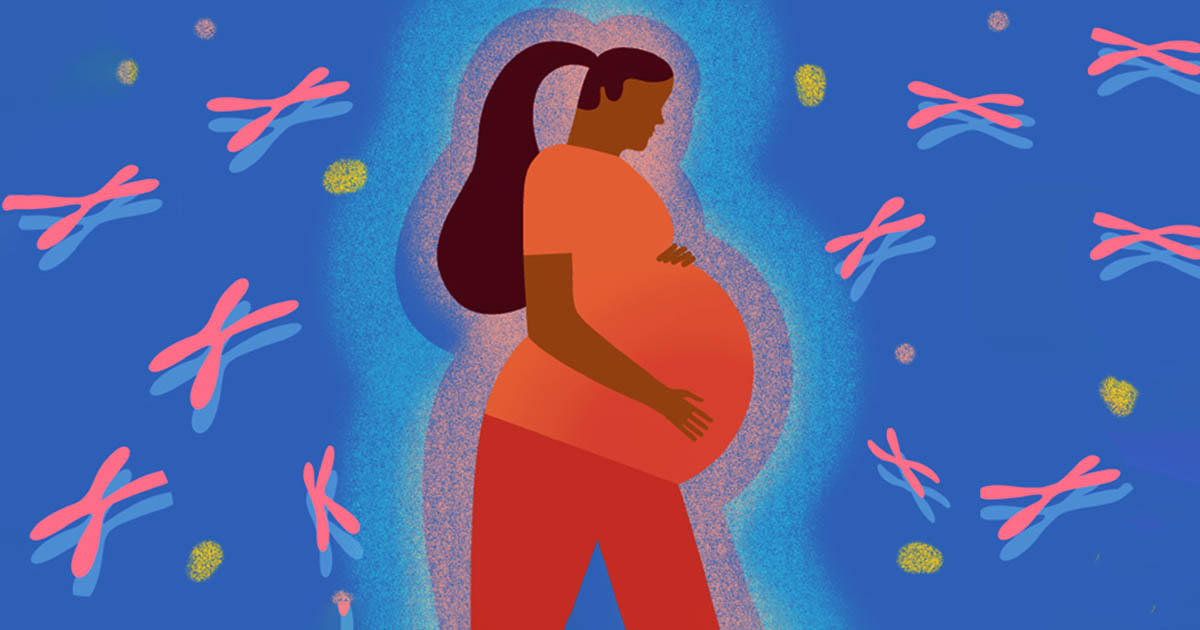Though a lot of progress has been made in understanding autism during pregnancy, its origins and possible risk factors in pregnancy remain areas that are being researched intensively and talked about.
This article looks at five worrisome causes that have been investigated or are sometimes associated with autism during gestation. We will touch on things like medication use, environmental exposures as well as maternal health conditions among other complexities involved in the development of autism while still inside the womb.
It is important for expecting mothers and healthcare providers to know these potentialities because it gives them power over their decision-making abilities and enables them to take action ahead of time.
9 Alarming Causes of Autism During Pregnancy
Though so much is unknown about autism spectrum disorder (ASD), researchers have pinpointed some factors that may be associated with its development during pregnancy.

However, it is important to understand that autism is complicated and no one cause has been proven definitively.
Here are five potential factors linked with — or studied in connection to —causes of autism during pregnancy:
1. Use of Antiepileptic Drugs:
Studies have shown a possible link between taking antiepileptic drugs while pregnant — especially valproate, which is sold under the brand name Depakote — and having a higher chance of having a child with autism. In particular, according to research, valproate could increase the risk by up to 10 percent.
Therefore, individuals who are planning to get pregnant should discuss potentially changing or stopping their medication with their neurologist to protect the fetus from harm.
2. Use of Antidepressants:
Researchers have done many studies on whether it’s safe for pregnant women to take antidepressants like selective serotonin reuptake inhibitors (SSRIs). They found that these medications can increase the chances of having a child with autism spectrum disorder.
A systematic review and meta-analysis from 2015 provided strong evidence that using SSRIs during pregnancy raises a child’s risk for developing ASD.
Therefore, expectant mothers need to balance possible benefits against risks when deciding whether or not they should take antidepressants under medical supervision.
3. Advanced Age of Parents:
Many large studies have always found a close relationship between the advanced age of parents and the chances that their children shall suffer from autism.

Nevertheless, this danger appears to be more marked among older biological fathers; hence the mother’s age by conception also seems to play a significant role in determining autism risk.
Therefore, prospective parents need to consider the possible effects of old age on neurodevelopmental outcomes among offspring subjects thus initiating informed conversations with doctors before getting pregnant.
4. Giving birth prematurely:
Recurrent research has shown that there is a link between preterm births and autism spectrum disorders as well as other developmental disabilities.
It is worth mentioning here that seven percent (7%) of babies who are born too early will eventually develop Autism which represents a significantly higher rate than general population prevalence estimated at 1% -2%.
Moreover, low weight at delivery has been regarded as another associated risk factor although it cannot be prevented completely.
As such, expectant mothers should take extra care during antenatal visits while also taking necessary steps towards ensuring the safety of their unborn babies after talking to healthcare providers about likely problems related to giving birth non-timeously.
5. Pregnancy Diabetes:
New findings indicate that children born to women with pregnancy-related diabetes are more likely to have autistic disorder than those without the condition.
This disease which starts during gestation is linked with various negative results such as preterm labor or preeclampsia besides attention-deficit hyperactivity disorder (ADHD) among others.
Given its potential impact on fetal development, individuals diagnosed should work closely with healthcare professionals to manage their conditions thus reducing risks associated with abnormal brain function in kids
6. Using Tylenol (Acetaminophen) While You Are Pregnant:
Tylenol is widely recognized as one of the only pain relievers that are safe for use during pregnancy.
However, there have been concerns about the potential risks it carries on fetal health such as causing neurodevelopmental disorders like autism and attention deficit hyperactivity disorder (ADHD).
Research conducted in Denmark and Spain found that children whose mothers took Tylenol during pregnancy were more likely to have autism than those who did not take any medications at all.
7. Iron Deficiency:
Iron is essential for healthy brain development in fetuses; yet iron deficiency remains common among pregnant women, with almost half failing to meet recommended levels.
A 2014 study published by the American Journal of Epidemiology revealed a link between low maternal iron stores and increased risk for Autism Spectrum Disorders (ASDs).
This association was particularly pronounced among older mothers or those with metabolic conditions throughout their pregnancies.
8. Environmental Toxins:
Certain environmental toxins present in everyday items like plastics, newly constructed homes, carpets as well food packaging can contribute to higher chances of developing autism spectrum disorders (ASD).

Although earlier investigations proposed a relationship between them, current studies have produced conflicting results.
These include Bisphenol A (BPA), Polybrominated diphenyl ethers (PBDEs), Polychlorinated biphenyls (PCBs), and Polychlorinated dibenzodioxins(PCDDs).
Additionally, traffic-related air pollution; specific heavy metals such as lead or mercury; and certain pesticides like organophosphates may also increase the risk for ASDs among others.
9. Problems with Health:
Having more than one research study identify health problems related to pregnancy that may lead to autism through meta-analyses is an indication of multiplicity. Such conditions include the birth parent having autoimmune diseases, infections during pregnancy, and prenatal stress.
Moreover; another meta-analysis conducted in the past indicated a wider variety of potential complications throughout gestation which were associated with increased risks of developing autism.
These included among other things abnormal fetal presentation, umbilical cord complications, fetal distress, birth injury or trauma, multiple births, maternal hemorrhage, low birth weight babies who are small for their age in terms of weight gain vis-à-vis peers born at the same time (SGA), congenital malformations and difficulties breastfeeding.
These factors demonstrate how complex autism is and suggest that multiple aspects should be taken into account when considering healthy outcomes during pregnancy.
Read More: How to Become Pregnant with PCOS: 7 Proven Strategies For A Promising Start
Steps For Preventing Autism During Pregnancy
Preventing autism during pregnancy is a complicated and multifaceted endeavor with many factors to consider.

While there is no surefire way to prevent autism, there are some steps that may lower the risk or support healthy brain development in the fetus:
1. Prenatal care:
It is important to have early and comprehensive antenatal care for both mother and baby’s health. Routine check-ups during pregnancy help identify possible risks or complications which can be dealt with immediately.
2. Healthy living:
A healthy lifestyle prior to conception and throughout gestation can have positive effects on the developing fetus. This involves eating a balanced diet that provides all essential nutrients, being physically active (as directed by healthcare professionals), managing stress levels, and staying away from harmful substances like alcohol, tobacco, and illegal drugs.
3. Management of pre-existing medical conditions:
Proper management of existing medical conditions such as diabetes, obesity, or autoimmune disorders is necessary while pregnant so as not to endanger fetal growth or well-being. Controlling these diseases under close supervision from doctors helps minimize potential threats against normal development in the womb.
4. Medications:
It is important to talk about medication usage with healthcare providers since some types have been linked with higher chances of getting autism like antiepileptic drugs (AEDs) or antidepressants (ADs). Doctors can weigh risks versus benefits by considering different treatment options where applicable during the gestation period.
5. Environmental exposures:
Being mindful of environmental toxins and pollutants exposure when expectant is crucial too. For instance one should avoid contact with things like pesticides; heavy metals; and certain chemicals present in everyday items among others.
This will ensure safer indoor air quality plus the use of non-hazardous household products thereby reducing environmental hazards.
Note that although these interventions could mitigate specific autism-related risk factors it does not mean prevention for everyone because autism spectrum disorder (ASD) arises due to the complex interplay between genetics.
Read More: What Is The Best Age To Get Pregnant? 4 Crucial Insights!
A Word From Mind Family
In closing this examination of possible causes and prevention strategies for autism in pregnancy, Mind Family emphasizes the need for informed decision-making and proactive healthcare during the prenatal phase.
Though there are still many unknowns about autism spectrum disorder (ASD), it is evident that a complex approach is required to ensure good health for the mother as well as the child.
Mind Family urges expectant parents to keep themselves educated, involved with their healthcare providers, and focused on their general welfare throughout the stages of pregnancy. By doing so, we can all work together towards healthier results while supporting brain development among generations to come.
Frequently Asked Questions (FAQs)
1. What are the signs of autism during pregnancy?
Autism spectrum disorder (ASD) is typically not diagnosed during pregnancy. Signs of autism typically emerge in early childhood and may include challenges with social interaction, communication difficulties, and repetitive behaviors. However, certain prenatal risk factors, such as maternal health conditions or medication use, may warrant closer monitoring during pregnancy.
2. What are the causes of autism during pregnancy?
The exact cause of autism spectrum disorder (ASD) is not fully understood, and no single cause has been definitively proven. However, researchers have identified several potential factors that may influence its development during pregnancy. These include genetic predisposition, environmental exposures, maternal health conditions, and medication use.
3. What are the steps for preventing autism during pregnancy?
Preventing autism during pregnancy includes early and comprehensive prenatal care, maintaining a healthy lifestyle, managing pre-existing health conditions, discussing medication use with healthcare providers, and minimizing exposure to environmental toxins and pollutants.












Leave a Reply